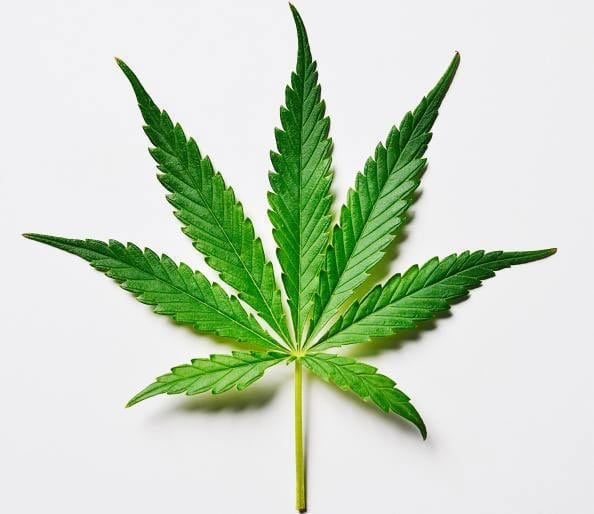- Your cart is empty
- Continue Shopping
8 THINGS SMOKING WEED DOES TO YOUR BODY
When it comes to polarizing health topics, few subjects spark more debate than weed (exept maybe CrossFit or the Paleo Diet). The latest marijuana research, from University of Michigan Health System, suggests toking up regularly can dull your emotional response and cause addiction.
Researchers at the University of Michigan analyzed 108 people in their early 20s (69 men and 39 women), all of whom were taking part in a larger study of substance use and all had MRI brain scans at three points over four years. In the study, participants played a game while a functional MRI scanned their brains. More specifically, participants played a game in which they pressed a button when they saw a target on a computer screen cross in front of them. Before each round, they were told they could win 20 cents or $5—or they might lose that amount, or have no reward or loss. Scientists assessed the moment of anticipation (a.k.a. when volunteers knew they could get a few dollars richer).
“What we saw was that over time, marijuana use was associated with a lower response to a monetary reward,” study author and neuroscientist Mary Heitzeg, Ph.D, said in a press release. “This means that something that would be rewarding to most people was no longer rewarding to them, suggesting but not proving that their reward system has been ‘hijacked’ by the drug, and that they need the drug to feel reward—or that their emotional response has been dampened.”
That’s not all. Smoking weed might also be more addicting than you think.
“Some people may believe that marijuana is not addictive or that it’s ‘better’ than other drugs that can cause dependence,” Heitzeg said. “But this study provides evidence that it’s affecting the brain in a way that may make it more difficult to stop using it. It changes your brain in a way that may change your behavior, and where you get your sense of reward from.”
- Secondhand smoke may not seem all that bad. But it can have a major impact on your blood vessels, according to research from the American Heart Association. After rats inhaled secondhand smoke for one minute, their arteries carried blood less efficiently for at least 90 minutes. When they were exposed to secondhand tobacco smoke, however, their blood vessels recovered after 30 minutes. “While the effect is temporary for both cigarette and marijuana smoke, these temporary problems can turn into long-term problems if exposures occur often enough and may increase the chances of developing hardened and clogged arteries,” said study author Matthew Springer, Ph.D.
- Researchers at the University of Southern California found smoking weed may increase your odds of getting testicular cancer. In the , men who had testicular germ cell tumors were more likely to report previously using marijuana than those who didn’t have the tumors. A doctor for the American Cancer Society said that while the findings were interesting, more research needs to be done to determine if there was a causal relationship between cancer and marijuana use.
- Stoners get a bad reputation for being forgetful; and it turns out this stigma might not be a myth. Northwestern University scientists found former pot smokers had developed brain abnormalities in regions associated with short-term memory. Study participants also demonstrated reduced performance on memory-related tasks. Even more unsettling is the brains of pot smokers were abnormally shaped and looked smiliar to brains damaged by schizophrenia. (That’s not to say that smoking weed causes schizophrenia.)
- Artists, musicians, and other creative types sometimes credit marijuana as their source of inspiration. However, a study from the Netherlands seems to prove otherwise. Volunteers who were given marijuana with high THC content were not able to come up with as many solutions to a problem as those given a placebo. So, uh, you might want to put down the marijuana during your next brainstorming session.
- All those jokes about stoners killing their brain cells? They might have some merit, according to a 20-year study on smoking pot, which suggests that lighting up could decrease cognitive function, in addition to an increased risk of psychotic symptoms and disorders.
- It’s not all bad news for pot smokers. A from researchers at Tel Aviv University found weed may help bones heal stronger and faster. Cannabinoid cannabidiol, which is found in cannabis leaves and stems, helped mice recover from broken bones more effectively. Researchers believe the substance helps minerals get into the bone tissue, making bones stronger, sturdier, and less likely to break in the future.
- If you want to be successful, then you better lay off the weed, according to scientists at UC Davis and Duke. “People who smoked cannabis four or more days of the week over many years ended up in a lower social class than their parents, with lower-paying, less skilled and less prestigious jobs than those who were not regular cannabis smokers,” study author Magdalena Cerdá said in a press release. Cerdá and her colleagues had more bad news to share—cannabis users also had more financial troubles, antosicial behaivor at work, and experienced more relationship problems.

